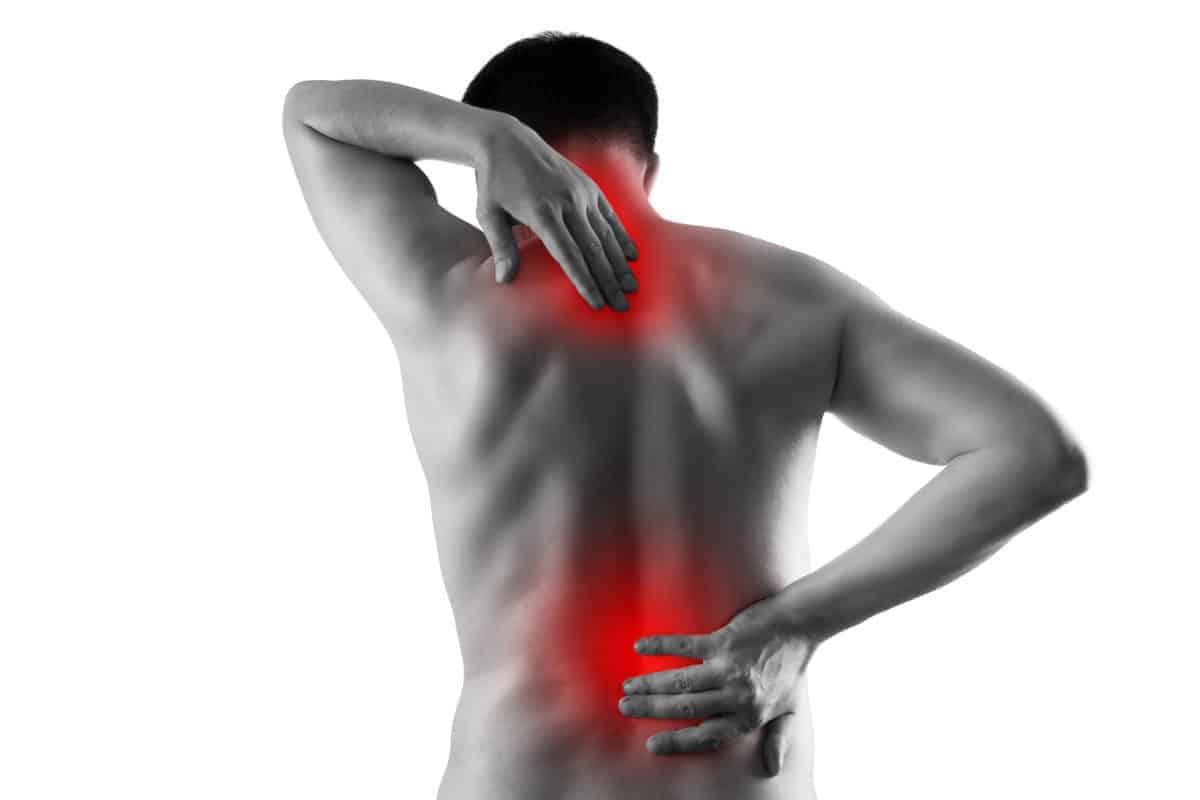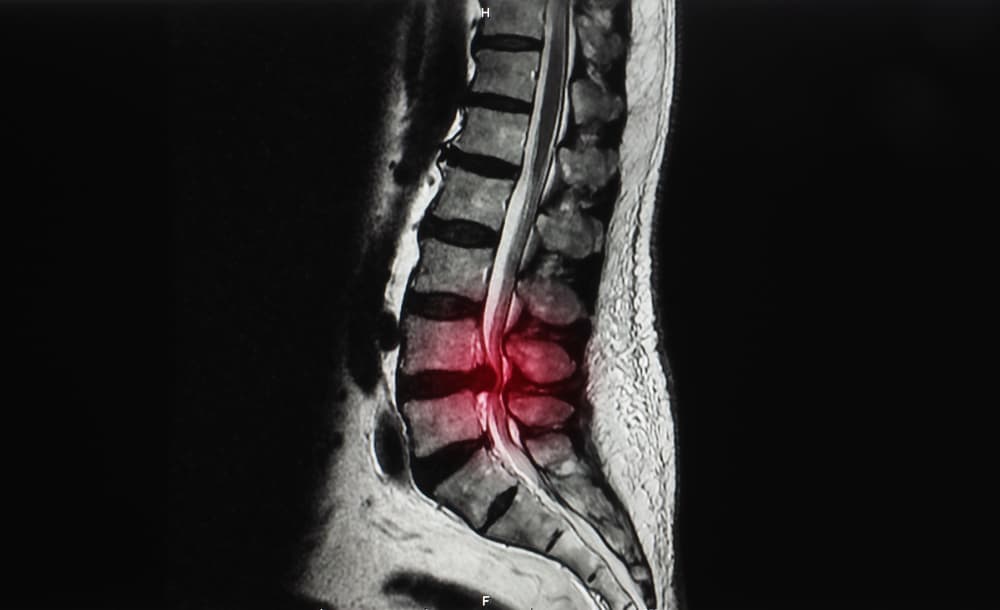Cuando se busca atención médica para lo que se cree que es dolor de ciática, nuestros médicos ortopédicos de Atlanta comienzan evaluando tu fuerza muscular y tus reflejos.
Algunos médicos prueban esas zonas haciéndote caminar de puntillas, o poniéndote de pie desde una posición en cuclillas, así como levantando las piernas de una en una mientras estás tumbado boca arriba. Si sientes dolor al realizar estas acciones y movimientos, el nervio ciático podría ser el culpable.
Prueba
El dolor ciático puede deberse a muchos motivos distintos, por lo que es necesario realizar diversas pruebas. Puede solicitarse una radiografía para determinar si hay un espolón óseo que pueda estar presionando el nervio.
En algunos pacientes, una hernia discal puede ser la causa del dolor ciático, y esto se determina mediante una resonancia magnética, que permite obtener imágenes detalladas de los huesos y los tejidos blandos. Para esta prueba, te tumbarás en posición horizontal sobre una camilla y te introducirás lentamente en la máquina de resonancia magnética. Cuando hay que evaluar la columna vertebral, puede solicitarse un mielograma por TC, que es cuando se inyecta un colorante en el conducto raquídeo y luego circula por la médula espinal y los nervios, que aparecen blancos en un escáner.
Si se sugiere una compresión nerviosa, la electromiografía puede ayudar a comprobar la respuesta de tus músculos. Esta prueba determinará si hay compresión nerviosa causada por una hernia discal.
Tratamiento de la ciática
No todos los dolores de ciática requieren atención médica, ya que algunos pueden tratarse en casa; sin embargo, si los remedios caseros no dan resultado, nuestros médicos ortopédicos de Atlanta pueden proporcionarte nuestros métodos eficaces.
Medicamentos
Entre los medicamentos que han demostrado su eficacia en el tratamiento del dolor ciático se incluyen:
- Antiinflamatorios
- Relajantes musculares
- Narcóticos
- Antidepresivos tricíclicos
- Medicamentos anticonvulsivos
Fisioterapia
Trabajar con un fisioterapeuta puede ayudarte a reconstruir tus cimientos y a prevenir futuras lesiones. Cuando se trabaja con fisioterapia aprenderás ejercicios que te ayudarán a ajustar la postura y a fortalecer el tronco, lo que te permitirá tener una espalda fuerte y una mayor flexibilidad.
Inyecciones de esteroides
Si los medicamentos por sí solos no funcionan, el siguiente paso pueden ser las inyecciones de corticoesteroides. Estas inyecciones se colocan alrededor de la raíz nerviosa y ayudan a suprimir el dolor, así como a reducir la inflamación. Este tratamiento suele ser eficaz, pero sólo dura unos meses. Los efectos secundarios pueden ser arriesgados si las inyecciones se realizan con demasiada frecuencia, por lo que sólo se utilizan con cierta frecuencia.
Opción quirúrgica
Si el nervio comprimido causa complicaciones, como pérdida de control de esfínteres o debilidad en una zona a pesar de todos los demás esfuerzos, la cirugía puede ser una opción viable. Nuestros cirujanos seguirían adelante y extirparían el espolón óseo o la hernia discal que estaba provocando el dolor ciático.
Sin embargo, muchos pacientes pueden tratar su dolor de ciática sin los métodos anteriores y utilizar remedios caseros y tratamientos de autocuidado desde la comodidad de su propio hogar. De nuevo, si los síntomas persisten más de unos días y estos tratamientos de autocuidado no resultan eficaces, acude a uno de nuestros médicos ortopédicos altamente cualificados.
Otros tratamientos de autocuidado que pueden ayudar son:
- Cuando aparezcan los primeros síntomas, intenta utilizar compresas frías en la zona dolorida mientras descansas durante periodos de 20 minutos.
- Al cabo de 2-3 días, el uso de compresas calientes en la posición más baja puede ayudar a aliviar algunas de las molestias. Las compresas calientes y frías pueden utilizarse de forma alterna para proporcionar el mayor alivio.
- Para aliviar mejor la compresión de la raíz nerviosa en casa, estirar la zona lumbar puede ayudarte a encontrar alivio. Al estirar, es mejor evitar los rebotes y las torsiones, ya que pueden causar más daño. Mantén el estiramiento durante unos 30 segundos y luego pasa a otro estiramiento.
- Medicamentos sin receta. Los analgésicos como el ibuprofeno (Advil, Motrin IB, otros) y el naproxeno sódico (Aleve) a veces son útiles para la ciática.
Métodos alternativos para el tratamiento de la ciática
La acupuntura es un método en el que se colocan finas agujas en la piel, en determinados puntos de todo el cuerpo. Algunos estudios han demostrado que este método es una forma eficaz de tratamiento y los pacientes han mostrado mejoría tras someterse a él, mientras que otros no. Si quieres probar este método, busca un profesional autorizado en la materia.
La atención quiropráctica es un enfoque médico en el que se utiliza la manipulación vertebral para aumentar la movilidad de la columna vertebral. El objetivo final es restablecer el movimiento y disminuir el dolor del paciente. Este método es un tratamiento seguro y eficaz para quienes padecen dolor lumbar; sin embargo, puede no ser tan eficaz para quienes tienen dolor irradiado.
Preparación para tu cita
Si los síntomas persisten durante más de un mes, nuestros médicos ortopédicos de Atlanta recomiendan buscar la atención de un médico para desarrollar un tratamiento de la ciática de la ciática.
Cómo prepararlo:
- Anota tus síntomas y cuándo empezaron.
- Enumera la información médica clave, incluidas otras enfermedades que padezcas y los nombres de los medicamentos, vitaminas o suplementos que tomes.
- Anota cualquier accidente o lesión reciente que pueda haberte dañado la espalda.
- Anota cualquier otra pregunta que tengas para el médico.
Preguntas que puede hacerte el médico ortopédico:
- ¿Tienes entumecimiento o debilidad en las piernas?
- ¿Ciertas posturas corporales mejoran o empeoran tu dolor?
- ¿El dolor limita algunas actividades?
- ¿Qué tipo de ejercicios haces?
- ¿Qué tratamientos o medidas de autocuidado has probado? ¿Te ha ayudado algo?
Nuestro equipo de Ortopedia de Atlanta está altamente formado en diversos métodos de tratamiento de la ciática, y llamarnos hoy puede ayudarte a dar un paso en la dirección correcta para encaminarte hacia la recuperación. Marca el (404) 855-2141 para obtener más información.





